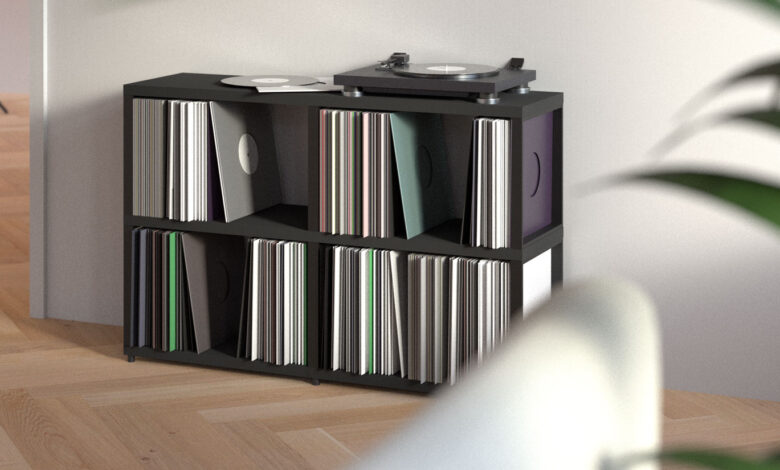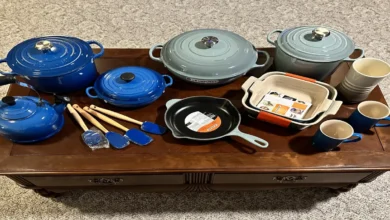The Ultimate Guide to Vinyl Record Storage: Preserving Your Prized Collection

Vinyl Record Storage Vinyl records have made a massive comeback in recent years, with collectors and music enthusiasts cherishing their warm, authentic sound. However, owning vinyl isn’t just about playing them—proper storage is crucial to maintaining their quality and longevity. Whether you’re a seasoned collector or just starting, understanding how to store vinyl records correctly will ensure they remain in pristine condition for decades.
In this comprehensive guide, we’ll explore the best practices for vinyl record storage, from choosing the right environment to selecting the best shelving solutions. Vinyl Record Storage By the end, you’ll have all the knowledge needed to protect your collection from warping, dust, and other common issues.
Why Proper Vinyl Record Storage Matters
Vinyl records are delicate and susceptible to damage from environmental factors like heat, humidity, and improper handling. Vinyl Record Storage Poor storage can lead to warping, scratches, and even mold growth, all of which can ruin the sound quality of your records.
Proper storage isn’t just about keeping your records organized—it’s about preserving their audio integrity. A well-maintained collection will sound better and last longer, ensuring that your favorite albums remain playable for years to come. Vinyl Record Storage Additionally, well-kept records retain their value, which is especially important for rare or limited-edition pressings.
Beyond sound quality, proper storage also makes your collection more accessible. Vinyl Record Storage A neatly organized system allows you to quickly find the record you want without digging through piles, reducing the risk of accidental damage.
Best Environment for Storing Vinyl Records

The environment where you store your vinyl records plays a huge role in their longevity. Vinyl Record Storage Temperature, humidity, and light exposure all impact the condition of your records over time.
Temperature Control
Vinyl records should be stored in a cool, stable environment—ideally between 60-70°F (15-21°C). Extreme heat can cause records to warp, while cold temperatures can make them brittle. Avoid storing records in attics, garages, or basements where temperatures fluctuate drastically.
Humidity Levels
High humidity can lead to mold growth on record sleeves and even damage the vinyl itself. The ideal humidity level for vinyl storage is between 40-50%. If you live in a humid climate, consider using a dehumidifier or silica gel packs to absorb excess moisture.
Avoid Direct Sunlight
UV rays can fade album artwork and weaken vinyl over time. Store your records away from windows and direct sunlight. If possible, use opaque storage bins or keep them in a dark cabinet to minimize light exposure.
Choosing the Right Storage Solutions for Vinyl Records
Once you’ve secured the right environment, the next step is selecting the best storage solution for your collection. The way you store your records—whether vertically or horizontally, in shelves or crates—can significantly impact their condition.
Vertical vs. Horizontal Storage
The best way to store vinyl records is vertically, just like books on a shelf. Storing them upright prevents warping and ensures even weight distribution. Horizontal stacking, on the other hand, can cause records at the bottom to warp under pressure.
However, if you must stack records horizontally (due to space constraints), limit the stack to no more than 10 records to minimize pressure.
Shelving Options
Investing in high-quality shelving is one of the best ways to protect your vinyl. Here are some popular options:
- Kallax (IKEA) Shelves – Affordable, sturdy, and designed with vinyl storage in mind.
- Custom Wooden Cabinets – Ideal for large collections, offering both protection and aesthetic appeal.
- Wall-Mounted Shelves – Great for displaying favorite albums while saving floor space.
Avoid wire or flimsy shelves, as they may not provide enough support and can bend under the weight of a growing collection.
Storage Boxes and Crates
For those who need portable storage, archival-quality storage boxes or wooden crates are excellent choices. Look for acid-free materials to prevent sleeve degradation. Milk crates are a classic option, but ensure they’re the right size—records should fit snugly without bending.
How to Handle and Clean Vinyl Records for Longevity

Even with the best storage setup, improper handling can damage your records. Here’s how to keep them in top shape:
Proper Handling Techniques
- Always hold records by the edges to avoid fingerprints on the grooves.
- Use both hands when removing them from sleeves to prevent bending.
- Avoid touching the playing surface—oils from your skin can attract dust and affect sound quality.
Cleaning Your Records
Dust and dirt can cause pops and skips, so regular cleaning is essential.
- Carbon Fiber Brush – Gently removes surface dust before each play.
- Record Cleaning Solution – Use a specialized vinyl cleaner and a microfiber cloth for deeper cleaning.
- Vacuum-Based Cleaners – Ideal for thorough cleaning, especially for rare or heavily soiled records.
FAQs About Vinyl Record Storage
1. Can I store vinyl records in plastic sleeves?
Yes! Polyethylene or polypropylene inner sleeves protect records from dust and scratches. Outer sleeves help preserve album artwork. Avoid PVC sleeves, as they can chemically react with vinyl over time.
2. How often should I clean my vinyl records?
Lightly brush records before each play. Deep clean them every 10-15 plays or whenever you notice excessive dust or static.
3. Is it bad to leave records on a turntable?
Yes. Leaving records on the turntable exposes them to dust and accidental damage. Always return them to their sleeves after playing.
4. Can I store records in a garage or basement?
Not recommended. These areas often have temperature fluctuations and humidity, which can warp records and damage sleeves.
5. How do I prevent warping in my vinyl records?
Store them vertically in a climate-controlled space, away from heat sources. Avoid stacking records horizontally for long periods.
Final Thoughts on Vinyl Record Storage
Proper vinyl record storage is essential for preserving sound quality and extending the life of your collection. By controlling temperature and humidity, using the right shelving, and handling records with care, you can enjoy your vinyl for decades.
Whether you’re a casual listener or a serious collector, taking these steps will ensure your records remain in perfect condition—ready to deliver that rich, warm sound every time you drop the needle. Happy spinning!



